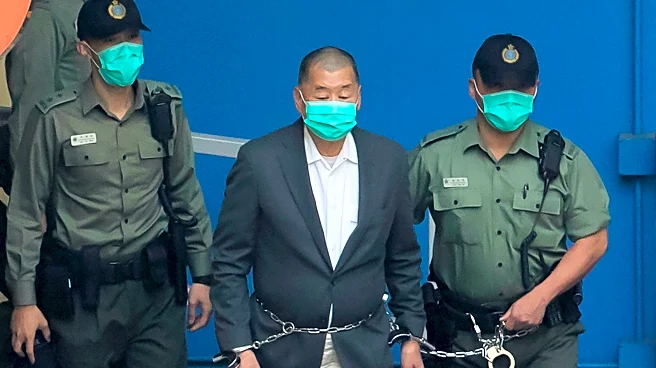Rapid Read • 8 min read
Nagasaki marked the 80th anniversary of the atomic bombing by the United States on August 9, 1945, which resulted in the deaths of 70,000 people by the end of that year. The memorial event at Nagasaki Peace Park was attended by approximately 2,600 people, including representatives from over 90 countries. Survivors of the bombing, such as Hiroshi Nishioka, shared their experiences and emphasized the ongoing impact of nuclear weapons. Mayor Shiro Suzuki and Prime Minister Shigeru Ishiba spoke at the event, advocating for the abolition of nuclear weapons and world peace. The ceremony included a moment of silence at the exact time of the bombing and the release of doves as symbols of peace.
AD
The commemoration highlights the persistent threat of nuclear weapons and the importance of disarmament efforts. Survivors and their families continue to advocate for a world without nuclear weapons, fearing that global trends are moving in the opposite direction. The event underscores the need for international cooperation to prevent future nuclear attacks and promote peace. The absence of representatives from certain countries, such as China, reflects ongoing geopolitical tensions. The ceremony serves as a reminder of the devastating consequences of nuclear warfare and the urgent need for global disarmament initiatives.
Survivors are placing their hopes in younger generations to continue advocating for nuclear disarmament. Efforts are being made to document and share survivors' stories through digital platforms to ensure their experiences are not forgotten. Japan's Prime Minister Shigeru Ishiba pledged to promote dialogue between nuclear and non-nuclear states at the upcoming Non-Proliferation of Nuclear Weapons review conference in 2026. The international community faces the challenge of moving from rhetoric to action in strengthening the global disarmament regime.
The event raises ethical questions about the use of nuclear weapons and the responsibility of nations to prevent future atrocities. The survivors' stories highlight the long-term health and social impacts of nuclear attacks, including discrimination and illnesses from radiation exposure. The ceremony also reflects cultural dimensions, as Nagasaki's history of persecution and resilience is commemorated through religious and community gatherings.
AD
More Stories You Might Enjoy













